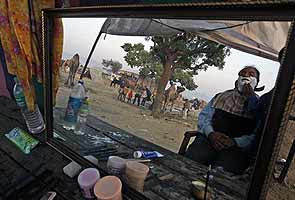Pressemitteilung / Hamburg, 21.10.2013
„Deutsche Baumaschinen zu gut für den Weltmarkt“ titelte Die Welt am 17.4.2013. Deutsche Maschinenbauer werden dem Bericht zufolge trotz Innovationstrophäen von den Märkten der Schwellenländer verdrängt. Die Gründe sind sowohl die fehlende Zahlungskraft als auch die abnehmende Zahlungsbereitschaft lokaler Kunden. Anstelle hoch komplexer („over-engineered“) und damit einhergehend teurer Produkte fragen sie erschwingliche und robuste Technik nach, die häufig aus anderen Ländern und insbesondere aus den Schwellenländern selbst kommt. Solche „good enough“ Produkte, Lösungen mit ausreichender Funktionalität bei guter Qualität und einem sehr wettbewerbsfähigen Preisniveau, kennzeichnen den Innovationsansatz „frugaler Innovationen“.




